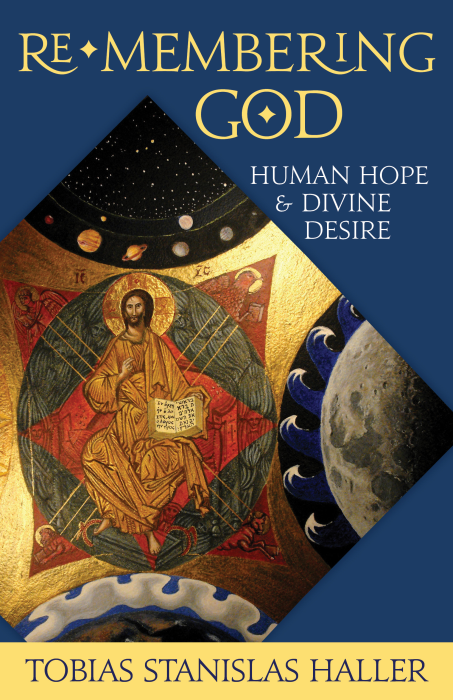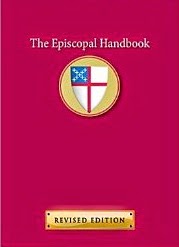On the Saint Andrews Draft
The Saint Andrews Draft Covenant represents a marked improvement over the earlier effort. Many of the concerns raised in response to the earlier draft have been addressed, and a number of the troublesome details have been eliminated. In particular, the first two sections of the draft place the theology of covenant on a stronger foundation. Section One’s appeal to the articles of the Chicago-Lambeth Quadrilateral — long accepted as the basis for intercommunion with traditions outside Anglicanism, and so all the more meaningful as a basis for communion within it — establishes recognizable and already agreeable boundaries. There will, of course, continue to be disagreements concerning exactly what constitutes an acceptable “pattern of Christian theological and moral reasoning and discipline that is rooted in and answerable to the teaching of Holy Scripture and the catholic tradition.” (1.2.2) But the same section’s emphasis on remaining in Eucharistic communion (1.2.3) and common pilgrimage (1.2.6) in spite of such disagreements shows a grasp of the irrevocable nature of communion.
The enduring nature of communion is eloquently laid out in Section Two: it is a gift of God (2.1.1) ordered towards and nourished by mission (2.1.2,3) in a program of action deriving from the Anglican Consultative Council’s mission strategy, itself clearly influenced by the Baptismal Covenant of the American Book of Common Prayer. (2.2)
Section Three begins well, charting out, in an essentially non-controversial manner, the collaborative and consultative structures that have evolved, and are currently in place, in the Anglican Communion. It is only with paragraph 3.2.5 that we begin to hear about threats to the unity so well established throughout the rest of the document. If unity derives from Christ, how is Christ divided? If unity is found in our mission, how is unity challenged if the mission continues to be carried out?
Section Three defines our present difficulties rather than actually solving them: What are we to do when a minority of provinces in the communion disagrees with the majority? The ultimate answer offered by this draft, soft-pedal it as much as one likes, is excision — the very thing one would have thought impossible if the communion truly were based in Christ, who is not, and cannot be, divided. This draft continues in the mode of a pre-nuptial agreement rather than a covenant of irrevocable commitment.
Thus the primary difficulty with this covenant lies in providing for the dissolution of the very communion it seeks to preserve. It is therefore our recommendation that the appendix and section 3.2.5 (and its subsections) be deleted. What remains would then be worthy of the name “Covenant” — a promise to remain together, united in Spirit and in Mission come what may.
— a statement from the General Convention Deputation of the Episcopal Diocese of New York








8 comments:
The phrase from your posted statement "...a promise to remain together, united in Spirit and in Mission come what may." reminded me.
When I was superior of our Order, I used to give two pieces of advice to a new novice: (1) Simply forget about leaving; just keep that idea out of your mind; just hold the thought: "I am going to stay, come what may." and (2) If you begin to have problems, always check yourself first and ask, "What in myself is contributing to this problem? What action can I take to alleviate it?"
A good part of the schismatic problem today is simply the fact that people allow themselves to consider schism as a viable option. If one puts that option up on an inaccessible shelf, then one can deal with the problem within the Body.
Good stuff, Tobias -- thank you!
Unity -- come what may -- what a divine commission!
(Dan)
"a promise to remain together, united in Spirit and in Mission come what may." A noble thought and compelling rationale for TEC to dissolve and its members rejoin the Roman Catholic Church.
Thank you, Fr J-J. That is wise advice, and it works on an ecclesiastical as well as a matrimonial or "votive" level -- vows are not to be taken with fingers crossed. I suppose it is obvious, but the prevalence of divorce is directly related to the ease by which it is obtained. And to frame a prenuptial agreement is surely a sign of defective intent -- I would find it very difficult to officiate at a marriage in which the couple had done so; it is "finger crossing" of the first order. Of course, these days in the church it is not uncommon to see people basically vow "obedience to anything with which I do not disagree" as some dioceses and parishes are amending their canons and bylaws. What would Father Benedict say of this sort of "obedience" or "commitment"?
Very cute, Dan. Of course, one might also say, why should not Rome allow all baptized persons at their altar rail, or at join the National Council of Churches of Christ to share in common mission -- yet instead they insist on the myth that they are the true church and all must conform to their governance before such cooperation can take place. I think the East has other ideas about that, as do we Anglicans, who were only "Roman Catholic" by accident and not by design. (The founding of the Church of England dates to the sixth century, and although the missionary effort was sponsored by Rome, Pope Gregory considered it an autonomous province, as were all the churches in his day. England only came under Roman sway as a temporary glitch in church history -- in spite of the romance spun since then by papalists.) So, we are willing to work with Rome in Spirit and Mission; it is they who create obstacles, setting conditions and requiring we do things their way. I prefer the "high way" as it is Christ's way.
If the offending sections of the draft were taken out, would what remains give the Anglican Communion something different than what we have now? Something better?
I find myself back where I was in the beginning, questioning whether it's at all necessary to have a covenant.
Dear Mimi,
The StA Draft, minus the "prenuptial" clauses, would put into writing something that has been more or less understood. The various provinces could then "sign off" on this commitment -- a commitment that until now was merely assumed on the basis of the historical connection with England (a few of the Uniting Churches excepted). This is, in part, a consciousness-raising exercise. It also will make clear, for any who doubt, that there are some in the present Anglican Communion who really do not wish to enter into an unconditional covenant relationship -- what they want is a conditional covenant in which they reserve the right to say to another member, "I divorce thee, I divorce thee, I divorce thee." Having all our cards on the table, to help to clarify what had simply been (and perhaps now obviously wrongly) assumed, would be of real service in helping those who do want to stay and work together (rather than walking apart in a globally southern direction) to get on with their work. That, I think, is a virtue.
Tobias, I take your point in favor of a covenant if, if, if.... I see the odds of a Covenant of the type you describe coming out of the committee as pretty slim. Of course, I could be wrong.
You may well be correct, Mimi. However, a covenant with the excision clauses is unlikely to be adopted by a majority of the present membership of the Anglican Communion. The issue is, do we want to become a Federation (as the SAD with PreNup suggests) or remain a Communion but with more ink on the paper.
The compelling arguement of unity would rather be for the Roman Catholic church to dissolve the barriers and go the Anglican way, with the Mass in the venacular, renewed emphasis on the Liturgy of the Word, respect for the informed conscience... o wait the RCC has adopted such measures? What next? Women priests? No doubt christian catholicity will be found in its fullest expression in the RCC once it has absorbed yet again the Anglican way.
Post a Comment